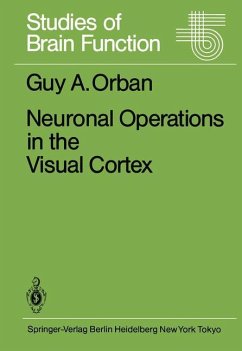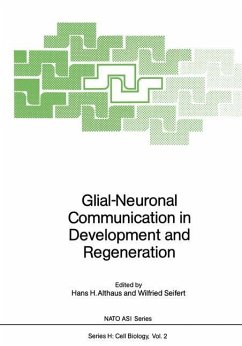
The Cortex of the Rat
A Stereotaxic Atlas
Versandkostenfrei!
Versandfertig in 1-2 Wochen
39,99 €
inkl. MwSt.

PAYBACK Punkte
20 °P sammeln!
The rat brain is the most widely used animal model in neurobio logy. The frequency of its use underlines the need for stereotaxic atlases of the rat brain. The first attempt to fulfill this require ment was made by Krieg (1946c), but his atlas contains only very rough data based on 30 schematic drawings of coronal sections. The drawings are exaggeratedly schematic and signifi cantly distorted. This, together with the fact that Krieg delin eated far too few structures in the di- and rhombencephalon, makes the accurate placement of electrodes difficult. Accurate [1] electrode placement is essent...
The rat brain is the most widely used animal model in neurobio logy. The frequency of its use underlines the need for stereotaxic atlases of the rat brain. The first attempt to fulfill this require ment was made by Krieg (1946c), but his atlas contains only very rough data based on 30 schematic drawings of coronal sections. The drawings are exaggeratedly schematic and signifi cantly distorted. This, together with the fact that Krieg delin eated far too few structures in the di- and rhombencephalon, makes the accurate placement of electrodes difficult. Accurate [1] electrode placement is essential for advanced techniques in mod em neuroanatomical, neurophysiological, and neurochemical studies. Nevertheless, Krieg's work represents the first delinea tion of cortical areas in the rat. These delineations were more elaborately produced and partly corroborated by experimental work by Krieg (1946a, b, 1947). Despite its shortcomings, this fundamentally valuable series of reports greatlyinfluenced ex perimental approaches in the four decades following its publica tion. The work of Konig and Klippel (1963) was another land mark in the development of stereotaxic atlases of the rat brain. This atlas is one of the most widely used works of reference on stereotaxic coordinates of the rat brain. Some difficulties, however, arise from the drastic changes there have been in the accepted parcellation of the thalamus, septum, and amygdala since the publication of this atlas.














